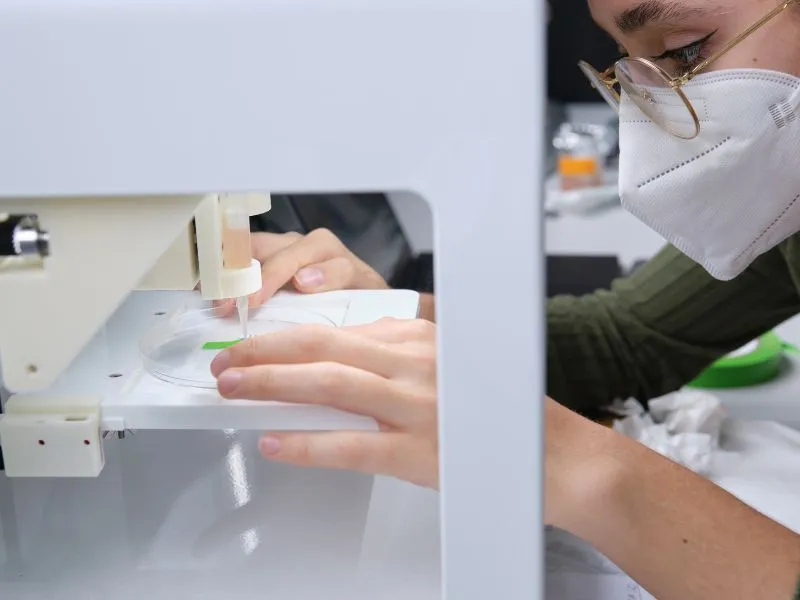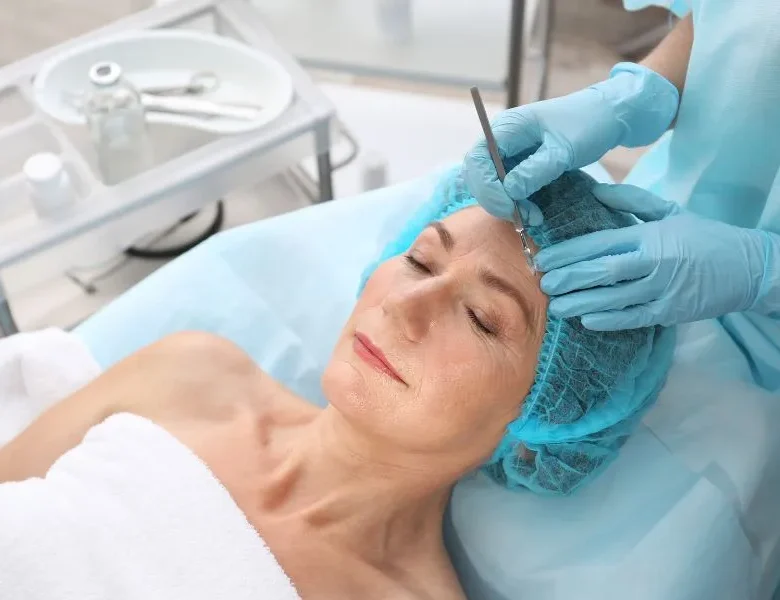“Permanent” Doesn’t Always Mean Forever
While the term “permanent” might be sprinkled generously across brochures and marketing materials, the reality is different.
Many surgical alterations, such as breast implants and face-lifts, have a shelf-life. Silicone breast implants, for instance, often require replacement after a decade or so due to wear and tear.
Even “permanent” fillers can degrade over time, requiring top-ups. Before going under the knife, you must realize that “permanent” often means “long-lasting under specific conditions.”
Additionally, bodily changes like aging, weight fluctuations, and hormonal imbalances can dramatically affect the outcomes. Hence, make sure to estimate the maintenance cost and commitment required to retain your dream look before committing to it.
Cosmetic Surgery Has Real Medical Benefits
It’s easy to paint cosmetic surgery as a shallow pursuit of aesthetic perfection, but many procedures offer genuine medical benefits.

For example, rhinoplasty can correct a deviated septum, alleviating snoring or breathing difficulties. Similarly, abdominoplasty (commonly known as a tummy tuck) can remove excess skin after weight loss, thus reducing the risk of skin infections and irritations.
So, when you hear someone is going for cosmetic surgery, you should understand that it’s not just about their appearance or beauty. They could also have underlying health complications that only cosmetic surgery can fix.
Dr. Rod J. Rohrich recently revealed that one of the many astonishing benefits of cosmetic surgery is the ability to use body fat as a healing agent.
Techniques like fat grafting can speed up wound recovery, reduce bruising, and facilitate stem cell growth. None of which are for beautification purposes only but also for health modifications.
So, it’s essential to view cosmetic surgery beyond the lens of personal beautification and understand that it serves as a health enhancement system and a gold mine of medical potential.
Your Surgeon Will Protect Your Privacy & Confidentiality
The law and professional ethics bind your cosmetic surgeon to maintain patient confidentiality. Unless you provide explicit consent, your surgeon cannot disclose any information about your procedure to third parties.
In other words, until you decide to share your cosmetic surgery journey, you and your healthcare provider firmly hold the details.
In many healthcare settings, electronic medical records (EMRs) have replaced traditional paper files, making it easier to store, retrieve, and manage your data, all thanks to remote medical scribes who are well-trained to adhere to all HIPAA (Health Insurance Portability and Accountability Act) guidelines to ensure they maintain the strictest confidentiality.
You may wonder, “What if I encounter someone I know in the waiting room or surgical center? Well, it’s a low probability. Many high-profile cosmetic surgeons go the extra mile to offer private entrances and waiting areas to ensure your absolute privacy.
Moreover, surgical teams know how to handle all patient data and post-operative care requirements confidentially, ensuring that the sanctity of your personal information remains unbreached.
Psychological and Physical Preparedness is Important.
Before approving any procedure, ethical cosmetic surgeons will assess a patient’s psychological readiness. This assessment is essential because the emotional toll of cosmetic surgery can be equally, if not more, impactful than the physical one.
Many people struggle with post-surgery depression as they adjust to their new appearance and grapple with society’s reactions.
It’s common to experience a sense of loss or even an identity crisis after a significant alteration.
Some patients go through periods of regret before they come to terms with their changed selves. Hence, it would help if you prepared yourself psychologically before committing to cosmetic surgery.
It’s All About Aesthetics and Functionality
Believe it or not, some cosmetic procedures enhance your appearance and ability to function daily.
Procedures like blepharoplasty, which targets sagging eyelids, can improve peripheral vision significantly.

Laser treatments, frequently categorized under cosmetic enhancements, can resolve chronic skin conditions like rosacea or severe acne.
So, while aesthetic appeal is undoubtedly a motivating factor, you should pay attention to the functional benefits of cosmetic surgery, as it’s equally a compelling reason to consider cosmetic intervention in the first place.
There’s a Lot More Innovation in the Pipeline
As research continues, we can expect even more groundbreaking procedures and techniques. We are standing at the cusp of an era where cosmetic surgery is blending seamlessly with regenerative medicine.

Techniques such as ‘3D bioprinting‘ of tissues and organs are no longer science fiction but soon-to-be-realized medical marvels.
Dr. Rohrich’s work suggests that future cosmetic surgeries involve manipulating your DNA to halt or reverse aging at the cellular level.
Therefore, even if you think you know all there is to know about cosmetic surgery, it’s an ever-evolving field that keeps pushing the boundaries of what is medically possible.
A Comprehensive Cosmetic Surgery Checklist:
If you intend to have a cosmetic surgery, here’s a concise checklist of essential tips you should follow:
Pre-Consultation
- Do Your Research: Investigate various procedures and determine which aligns best with your goals.
- Identify Surgeons: Look for board-certified cosmetic surgeons with excellent reviews and proven experience.
During Consultation
- Ask Questions: Bring a list of questions to your consultation. Ask about risks, recovery time, and costs.
- View Before and After Photos: Ask to see the surgeon’s portfolio to gauge the quality of their work.
- Check for Certification: Ensure your chosen surgeon is certified by an authorized medical board.
Financial Planning
- Understand Costs: Know the complete breakdown of expenses, including anesthesia, facility fees, and post-op care.
- Explore Financing Options: Check if the clinic offers payment plans or if your insurance covers any part of the procedure.
Health Checks
- Get a Physical Exam: Ensure you’re in good health to minimize risks associated with surgery.
- Discuss Medication: Inform your surgeon about any medication you take, as some may interfere with surgery or recovery.
Pre-Surgery Preparations
- Follow Dietary Guidelines: Depending on the procedure, you might need to fast or follow a specific diet.
- Plan for Recovery: Ensure you have someone to drive you home after surgery and assist you during the initial recovery days.
Day of Surgery
- Arrive Early: Give yourself ample time to settle in and complete any last-minute paperwork.
- Wear Comfortable Clothing: Opt for loose-fitting clothes that are easy to remove and put on.
Post-Operative Care
- Follow Recovery Guidelines: Adhere to your surgeon’s instructions for post-op care for best results.
- Monitor for Complications: Keep an eye out for signs of infection or other issues, and consult your surgeon immediately if something doesn’t feel right.
And that’s it! With this guideline, you should have a successful surgical process and quickly heal.




